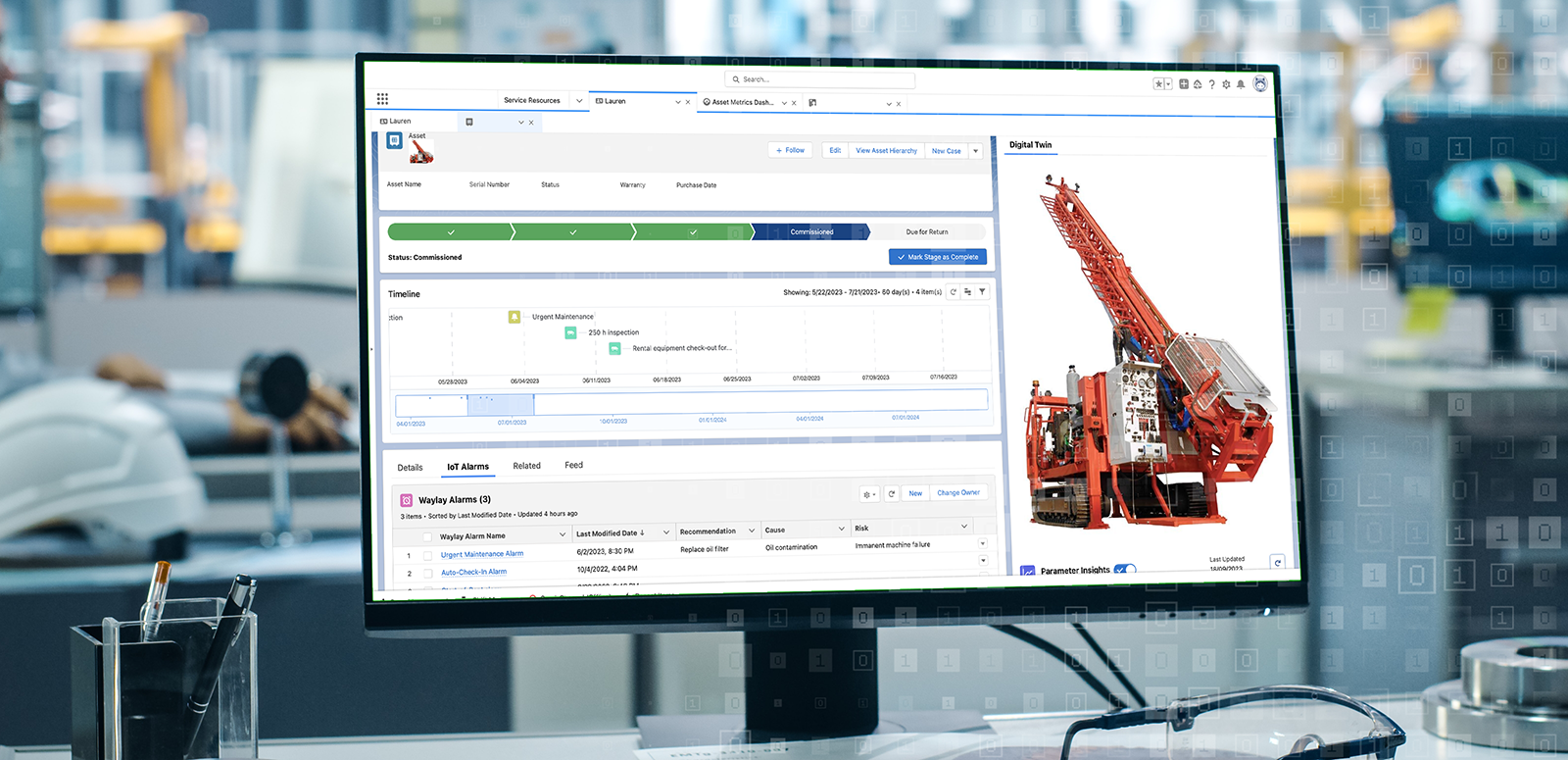In today's manufacturing industry, automation has ushered in a revolution by reshaping how products are manufactured, assembled, delivered, and serviced. A recent Zdnet market research article discussed the role of automation and AI is on the rise and how it is now top of mind for IT and business departments.
Within the realm of service management of industrial assets, like specialty vehicles, electrical infrastructure, and other industrial equipment, automation is driving operational cost improvements via proactive and predictive asset service management. Automation, in this domain, encompasses a suite of advanced software technologies, including API orchestration, smart heuristics, machine learning (ML), generative AI, and the Internet of Things (IoT), all working in harmony to reduce operational cost and improve customer experience in asset service management.
According to Zdnet market research, a staggering 62% of IT departments struggle to meet the ever-changing business demands. To address this problem, Waylay has built a full-stack real-time automation software solution that fuses the necessary automation technologies together to reduce the cost and risk for maintaining and building a software stack for condition based and predictive asset maintenance. Based on our 10 years of experience in this area, we summarize the benefits of the new automation capabilities we’ve witnessed.
Leveraging modern automation technology, discrete manufacturers gain several advantages:
- Enhanced Efficiency
Automated asset data monitoring solutions operate around the clock, off-loading the tedious and long-winded process of diagnosis and root cause analysis away from the human team member. This frees up time to propel efficiency and innovation within the expert team.
- Scalability
The manufacturing sector grapples with employee training and a shortage of skilled personnel. Automation, particularly in diagnosing machine data, can partially alleviate this challenge by encoding data expert, field agent and support agent expertise into automated diagnosis rules thus scaling the already available in-house expertise over a larger fleet of assets.
- Data-driven Insights
Connecting assets to the cloud generates a wealth of data that can provide insights into production trends, equipment performance, and process optimization. Armed with this information, manufacturers can make more data-driven, informed, and timely decisions, rather than going by gut-feel.
- Sustainability
Automation plays a pivotal role in monitoring asset adherence to sustainability goals set by the company, customers, and governments. In turn, this contributes to a more eco-friendly manufacturing process.
- Asset Service Management
Discrete manufacturing often involves a complex web of machine models and ecosystem of maintenance partners, each with its unique contractual needs. Delayed servicing or malfunctioning equipment can result in downtime and reduced productivity.
Automation offers real-time visibility into each asset and equipment, enabling optimized servicing, maintenance decisions, and scheduling with the ultimate goal of keeping the asset alive as long as possible. When the asset requires service, automated health checks can assist both internal and external maintenance staff.
- Spare Part Inventory Optimization
Automation can detect worn-out parts or the use of uncertified parts and make proactive part replacement suggestions. These insights can help to optimize the allocation of spare parts and their order scheduling, thus reducing spare part inventory costs.
How Waylay Empowers Discrete Manufacturers with Advanced Automation
While the benefits of automation are evident, implementing it in proactive and predictive asset service management presents its own set of challenges in the areas of people, processes, and technology, Waylay offers tailored solutions to help machine builders and original equipment manufacturers (OEMs) overcome these hurdles.
The platform boasts seamless integration and a comprehensive suite of software tools, facilitating effortless real-time data capture, rule management, analytics, digital service twin modeling, and service management optimization, resulting in higher productivity and efficiency across the board. By incorporating Waylay's low-code orchestration, automation, and analytics solutions, like our Digital Service Twin, business users gain a holistic view of asset performance data and the corresponding automation and monitoring rules at scale.
Conclusion
In conclusion, the impact of automation on discrete manufacturing is nothing short of transformative. As automation technology advances, discrete manufacturers should view it as imperative to maintaining competitiveness in an evolving market. While challenges persist, the allure of improved efficiency, precision, and scalability remains a powerful driving force for adoption.
The future of automation in discrete manufacturing holds immense potential, and discrete manufacturers should seize this opportunity to thrive. Those who adapt will lead the charge into a new era of manufacturing excellence. Waylay's automation platform stands as a steadfast ally, supporting companies in reaping the benefits of automation while staying adaptable to changing business demands. If you want to learn more about our offerings to discrete manufacturers, book a demo here.
About the Author
Dr. Tom Van Leeuwen is the VP of Product Management at Waylay. After his Ph.D. in Computer Science at Ghent University, Belgium, he honed his skills at Alcatel-Lucent, now Nokia, in 2007 and became the lead software product manager for home and access analytics solutions for the telecommunications market. He owns several patents in this domain. In 2019, he took on a new adventure and joined the scale-up Waylay as versatile, customer centric product manager with a keen eye for innovation. In his spare time, he likes to run and enjoy small-scale agricultural activities in his garden, next to raising two kids together with his wife.

















